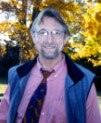John Shotter, Ph.D.
John Shotter had been an Emeritus Professor of Communication in the Department of Communication, University of New Hampshire, and worked as a consultant with KCC International (Kensington Consultation Center) for many years. His long term interest was in the social conditions conducive to people having a voice in the development of participatory democracies and civil societies. He was the author of Images of Man in Psychological Research (Methuen, 1975), Human Action and its Psychological Investigation (with Alan Gauld, Routledge, 1977), Social Accountability and Selfhood (Blackwell, 1984), Cultural Politics of Everyday Life: Social Constructionism, Rhetoric, and Knowing of the Third Kind (CP) (Open University Press and Toronto University Press, 1993), and Conversational Realities: the Construction of Life through Language (CR) (Sage, 1993). In 1997 he was an Overseas Fellow at Churchill College, Cambridge and a Visiting Professor at The Swedish Institute of Work Life Research, Stockholm, Sweden (see linked booklet written with Bjorn Gustavsen in 1999). He was a member of the Virtual Faculty where a number of his writings since CP and CR are posted. See information also on the Discursive Therapy, Postgraduate Diploma being offered at Massey University, NZ, and the references there to relevant work in some of the course materials. He was also a member of the LDI Core Community (the Learning Development Organization) – see also papers posted on that site.
He had begun to look beyond current versions of Social Constructionism, toward the surrounding circumstances making such a movement possible. Indeed, many versions of Social Constructionism still seem to be deeply ‘infected’ with the Cartesianism that in fact they aim to overcome. They had not yet moved on from a world of dead, mechanically structured activities to a world of living, embodied beings, spontaneously responsive to each other. The move first was to focus on joint action, then to dialogically-structured or ‘chiasmically organized’ (see Merleau-Ponty, 1968) activities, was a central part of his interest in participatory modes of life and inquiry. In his “Social Accountability…” book, he called the approach a social ecological one, and it is to this approach that he had returned.

John Shotter, Ph.D. Manuscripts
- Hearing The Patient’s ‘Voice’: Toward A Social Poetics In Diagnostic Interviews (1.29 MB)
- The Social Construction of Our ‘Inner’ Lives” (59.35 KB)
